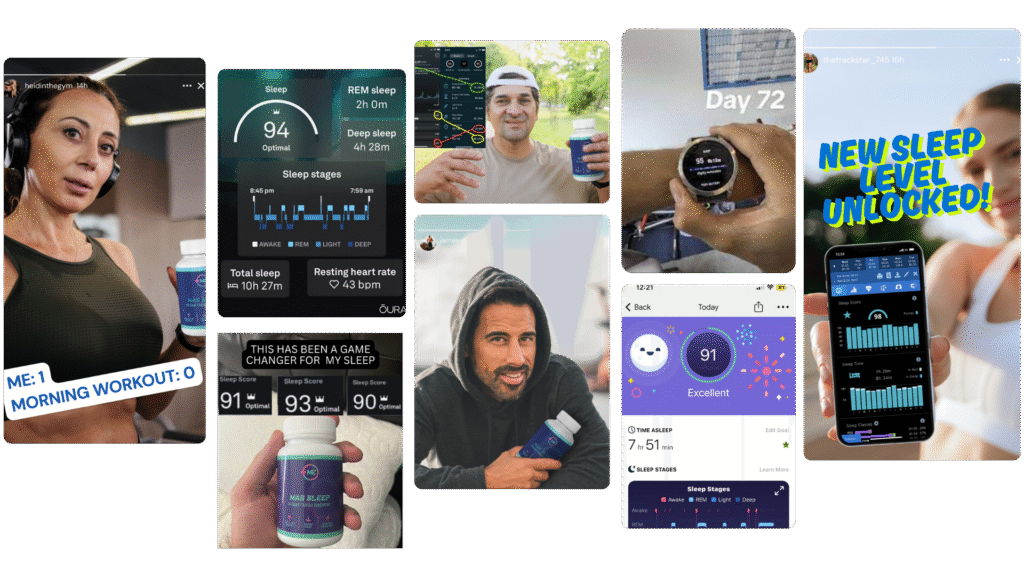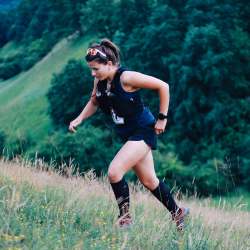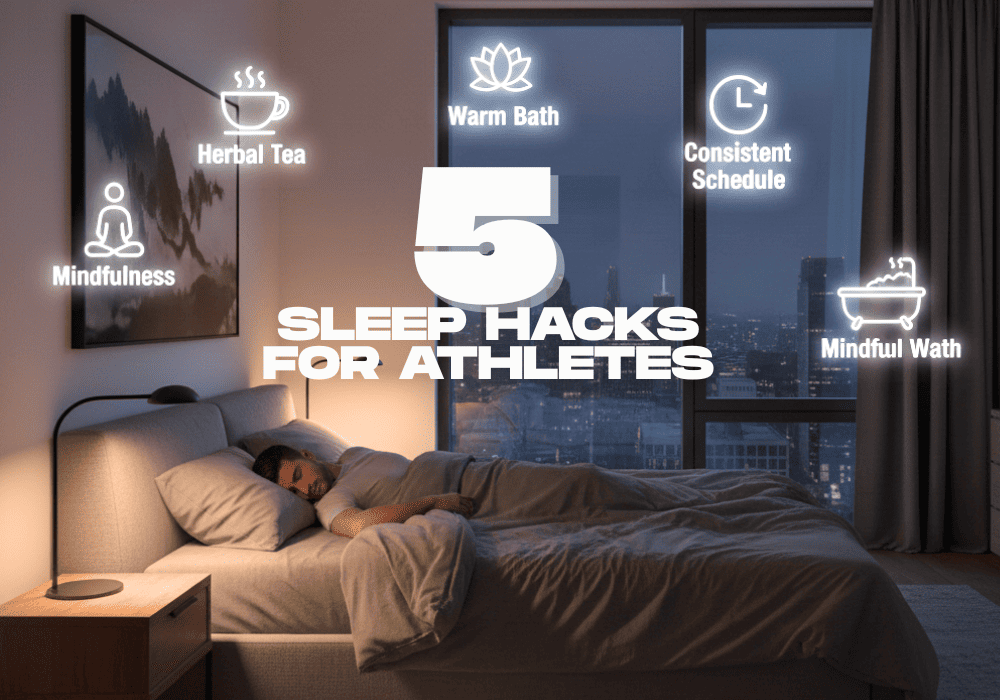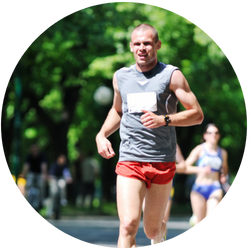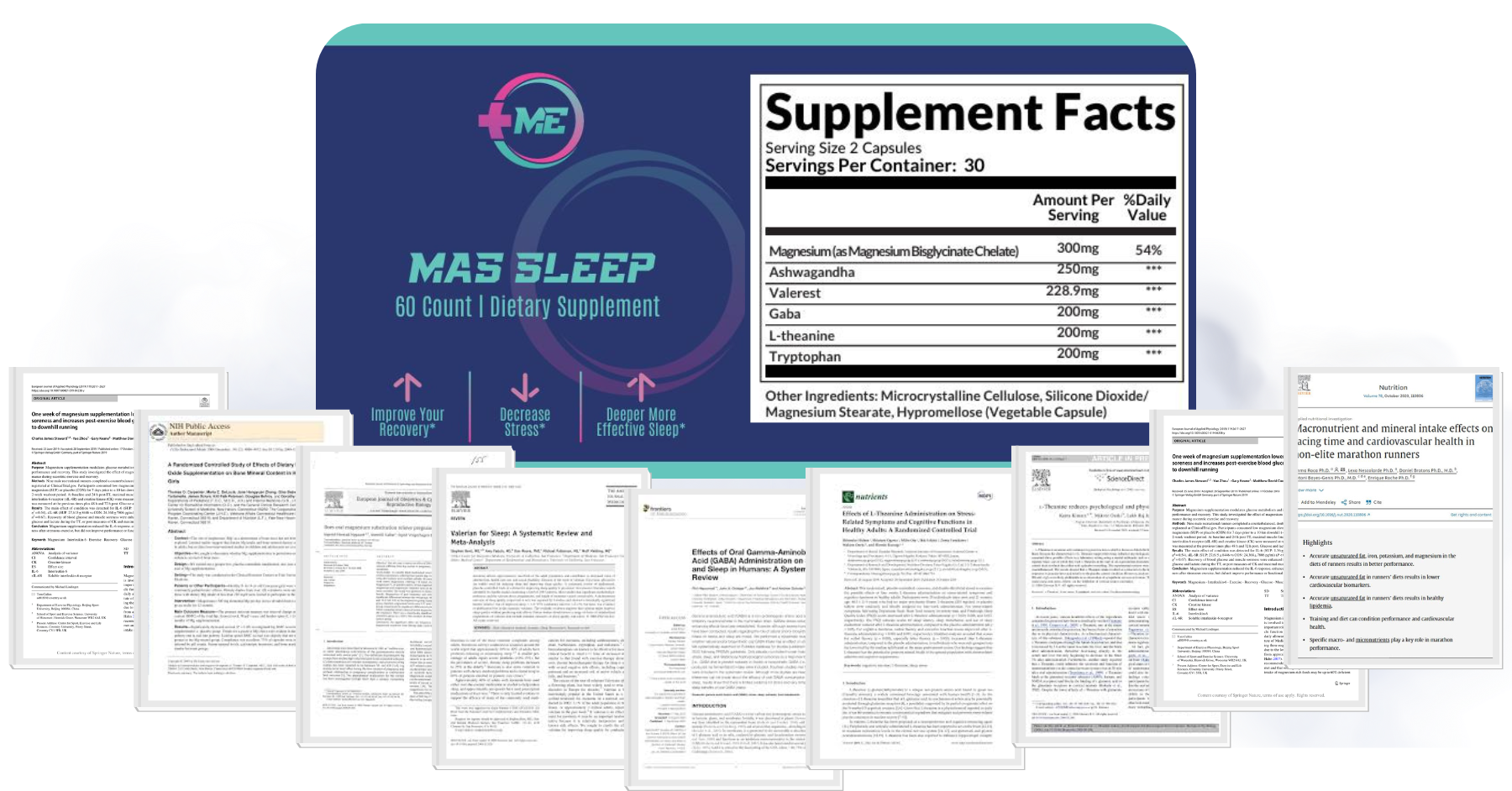You hear it often – sleep is essential to your recovery from training and ultimately your running performance (not to mention your overall health).
That said, how many of us really make getting 7-9 hours of sleep per night a true priority?
And for those of us that do, how often are we actually successful when you factor in kids, work, needing to get up early to train, not being able to fall asleep, etc.?
As someone who has made sleep a priority this year, I fully appreciate all the difficulties that come with getting a solid 8 hours of sleep every night.
So, in this article we’re going to…
- Look at data on how much sleep actually impacts your recovery and performance (both positively and negatively)
- Examine some researched-backed ways you can improve the quality of sleep you are able to get.
After reading this article, you’ll have a more comprehensive understanding of the exact reasons sleep is so critical and some concrete ways you can improve yours.
Why Exactly Does Sleep Matter so Much for Runners?
I’ll repeat my first sentence from this article – you hear all the time how important sleep is to your recovery, performance and overall health.
But, what does that actually mean?
I know for me, general statements like that don’t translate well to my brain. I need to understand the exact issues it causes and the science behind what’s going on.
It’s like when you hear that running slow helps you race faster. Everyone says it, but until you understand the science behind it, it’s a hard philosophy to adhere to.
So, let’s look at some of the research on exactly how a lack of sleep impairs your recovery and performance and how much adequate sleep can help you.
Improved Recovery through Increased Blood Flow
The first thing to remember about recovery is that in order to repair the muscle damage caused by training, you need to give your muscles the nutrients they need to rebuild. The body does this through the blood.
Therefore, the more blood you can circulate through to your damaged muscles, the more nutrients you can deliver and the faster you’ll recover.
Studies have shown that as you fall into the deeper stages of sleep, your muscles will see an increase in blood flow compared to REM sleep or when you’re awake.
This is another reason we want to track the time you spend sleeping in different “stages” since you may be getting enough total sleep, but not enough deep sleep to improve the recovery processes.
Increased Hormone Production
Another critical function that occurs during deep sleep is the pituitary gland releasing growth hormones into the body.
Growth hormones are one of the most efficient and effective ways that our bodies muscle repair and growth.
When you don’t get sufficient deep sleep, the secretion of this growth hormone declines, and it can become harder for your body to recover from injuries.
Conversely, insufficient sleep could result in higher levels of catabolic hormones responsible for energy production.
If you have ever been completely exhausted but couldn’t fall asleep, or if you did sleep yet woke up not feeling completely rested, it could be the result of elevated sympathetic nervous system (SNS) activity and higher levels of the hormone cortisol.
The SNS releases cortisol, which helps convert free fatty acids into energy for exercise. However, when glycogen is in low supply, cortisol can also convert amino acids into adenosine triphosphate (ATP), which inhibits muscle growth.
Reduced Inflammation
The hormone prolactin, which helps regulate inflammation, is also released while sleeping.
If you don’t get enough sleep, you’re more likely to experience inflammation in the body, which can make recovery more difficult while also putting you at risk of further injury.
Direct Performance Benefits
While most discussion about sleep focuses on recovery, there have been some more recent studies on how much improved sleep can improve performance and the physiological effects a lack of sleep can have on your performance.
Take for example this 2016 study that demonstrated athletes who underwent 6 nights of sleep extension improved time to exhaustion and a lower rating of perceived exertion during exercise.
Likewise, this 2009 study confirmed the opposite; sleep deprivation lead to a reduction in time to exhaustion and, for runners, resulted in needing more oxygen at rest and when training.
Tips and Strategies for Better Sleep
Now that we have some concrete data to help us better comprehend the positive impact sleep can have on our performance and recovery, let’s look at some easy-to-implement strategies that can help you improve your sleep quality.
I’ve tried quite a few tips and tricks for getting better sleep and these are the four that helped me the most…
Setup tracking
The first thing I recommend to anyone, even if you don’t have trouble sleeping, is to start tracking your sleep.
If there’s one thing we know about improving sleep, it’s that the same tactics, tricks, and supplements aren’t going to work for everyone.
Tracking is therefore critical to understand what is working and what isn’t working for you.
You’ll want to track (1) total time spent sleeping; (2) time spent in different phases of the sleep cycle; and (3) the number if times you wake up each night.
Each of these is important to understanding what issues you’re having with sleep and thus the best measures you can take to improve them. Plus, you have an easy way to tell what’s working for you and what’s not.
Luckily, there are devices on the market today that make tracking sleep easy. My favorite is Whoop because it’s super accurate and comfortable, plus it tracks a ton of other training and recovery related data.
Again, I highly recommend you don’t skip this step and even start tracking your sleep if you don’t have issues, even for just a little while, so you can have a data point should you encounter sleep issues down the road.
Keep Your Bedroom Cold
Your body’s ability to regulate your body temperature plays a critical role during sleep.
This is because your sympathetic nervous system is less excited and calmer in cooler conditions, especially during sleep. Thus, your body needs to drop in temperature by 1-3 degrees to fall and stay asleep effectively.
This leads to deeper sleep.
Moreover, body temperature increases are one of the main reasons you may wake up at night. Thus, keep your room cool and use blankets as needed.
I mentioned testing before and for me, sleeping in a cool room is the number one factor that moves the needle the most when it comes to my deep sleep and number of times waking per night.
Limit Light Exposure (Especially Devices)
You’ve likely heard this advice before, but how often do you consciously put it into practice?
This is one of those “easy and cheap” things you can do to dramatically improve sleep quality if you put your mind to it.
From a scientific perspective, light of any kind suppresses natural melatonin production, which is one of the main hormones our brain uses to signal to our body that it’s time to sleep.
Moreover, blue light (the lights emitted from our cell phones and other devices) has been shown to trick our brain into thinking it is still daytime, disrupting circadian rhythms and leaving us feeling alert instead of tired.
Be conscious for a few days or a week or two of how much time you spend in front of your devices before bed and track how much your sleep improves. I am willing to bet you’ll see a huge improvement in sleep markers with just this change.
Develop a Routine
Speaking of circadian rhythms, one of the most effective methods to being able to get consistent sleep is “training” your circadian rhythms so you’re ready to go to sleep when it’s your scheduled bedtime.
Obviously, sticking to a nighttime routine is easier said than done and there are often factors outside your control. However, in my experience, one of the biggest reasons for not getting sufficient total time of sleep stems from too much time just doing nothing at night or “unwinding”.
Trust me, as someone with 4 children, I understand how tempting it is to be able to final relax once the kids go to bed. However, that extra hour or 90 minutes you spend watching television at night adds up throughout the week and overtime.
Changing this habit isn’t always the easiest thing to do. What helped me was making a conscious decision to turn my nighttime “unwind” routine into a sleep prep routine.
Just like I do with my kids, I have a 15-minute routine before bed that helps me get in the frame of mind that it’s bedtime. I take my supplements (more on that below), get the bed ready and turn off the phone.
It sounds ridiculous, but it’s a great way to remind myself each night to focus on getting to sleep and not waiting time.
Supplements for Better Sleep
The above tips are the best place to start to make sure you have the building blocks in place for good sleep.
But, if you’re someone who struggles with sleep or has a specific issue (like falling asleep, staying in the optimal deep sleep zones, waking often, etc.) then sometimes you need to look beyond the normal suggestions.
This is where I find natural supplements to be super helpful.
Keep in mind, I am not talking about sleeping pills or other pharmaceutical ways to knock yourself out each night.
When I talk about supplements here, I mean natural vitamins, minerals and other compounds your body produces naturally and supplementing with them to improve deficiencies or aid in their production.
Since optimizing sleep has been my one big goal this year, I spent a lot of time gathering information on potential supplements and then doing an in-depth look at the research on each to determine if there was any science to support their efficacy (here’s a look at how I do this).
The following are some of the best natural supplements I’ve found and the research on how or why they work.
Magnesium
Magnesium is the single best “sleep supplement” you can use. It’s supported by countless research studies and impacts sleep, performance, and recovery on multiple levels.
Moreover, studies suggest that 75% of runners are deficient in magnesium, so it is likely a mineral you need to supplement with regardless if you need to improve your sleep or not.
We’ve written an in-depth article on all the research supporting the effectiveness of magnesium for runners here.
But, for a quick recap, research shows that magnesium can…
- Improve recovery between workouts by reducing the stress intense running causes
- Help prevent stress fractures because it enhances bone mineral content
- Reduce the chance of cramping since magnesium is an essential mineral responsible for muscle contractions
- And help you enter a state of “deep sleep” longer to recover better since it lowers cortisol levels
For me, this a no-brainer and something I have added to my nightly routine.
GABA
GABA is a neurotransmitter in the brain responsible for depressive and sedative actions and is critical for relaxation.
Low levels of GABA activity in the body can inhibit sleep. In one study, GABA levels in people who occasionally struggle with falling asleep were almost 30 percent lower than in people who sleep well.
If you’re someone who struggles to fall asleep because you can’t relax, then supplementing with GABA may help you fall asleep faster and calm your nervous system. I find it to be very helpful if I train later in the day or evening or after stressful travel.
L-Theanine
L-theanine is a naturally occurring amino acid that is found in tea and other natural sources. The main benefits of L-theanine are associated with promoting a relaxed state without causing drowsiness.
A 2015 study concluded “that the administration of 200 mg of L-theanine before bed may support improved sleep quality not by sedation but through anxiolysis.” Anxiolysis is a level of sedation in which a person is very relaxed and may be awake.
Like GABA, L-theanine is a great natural supplement if you struggle to fall asleep.
Valerest
Valerest is a proprietary blend of natural ingredients, including valerian root, designed to promote sleep and relaxation.
Results from multiple studies indicate that valerian — a tall, flowering grassland plant — may reduce the amount of time it takes to fall asleep and help you sleep better.
Specifically, a systematic review of 16 randomized controlled trials found that valerian improved sleep quality in 80% of trials.
In a meta-analysis of 18 studies valerian showed a statistically significant benefit compared to placebo [cite] and in a study of 128 patients, 44% reported perfect sleep and 89% reported improved sleep after valerian [cite].
Ashwagandha
Ashwagandha is known for its stress-reducing properties, and stress and anxiety are common culprits behind sleep disturbances. By calming the nervous system, ashwagandha may indirectly promote better sleep.
Some studies suggest that ashwagandha can lead to improvements in sleep parameters like sleep onset latency (the time it takes to fall asleep), total sleep time, and sleep efficiency (the ratio of time spent sleeping to time spent in bed).
Research indicates that ashwagandha may help reduce the number of times people wake up during the night.
Be Careful with Melatonin
You may have noticed I haven’t discussed melatonin yet, which is perhaps the most well-known natural sleep aid.
While melatonin is safe, many sleep experts believe consistent supplementation can cause your body to lower and eventually stop its own natural melatonin production.
That means you need to take more and more melatonin for it to work and eventually it stops working.
It has also been shown to make you drowsy in the mornings when waking up, which isn’t exactly how you want to feel if you need to consistently wake up early to train.
So, I don’t personally use melatonin daily and reserve using it only for “extreme” situations, like when I am trying to combat jet lag.
That's Why We Created MAS Sleep
MAS Sleep was created by athletes for athletes.
Unlike traditional sleep supplements that “knock you out” with melatonin and other habit-forming ingredients, we’re focused on improving your recovery through sleep.
We took all the most highly researched sleep ingredients and put them all in one formula.
That means…
- MAS sleep is a one-stop shop to improve your sleep quality from night 1.
- Ingredients that promote recovery while you sleep
- Athlete-proven dosages that help you achieve 90%+ sleep scores
- All natural, with no melatonin
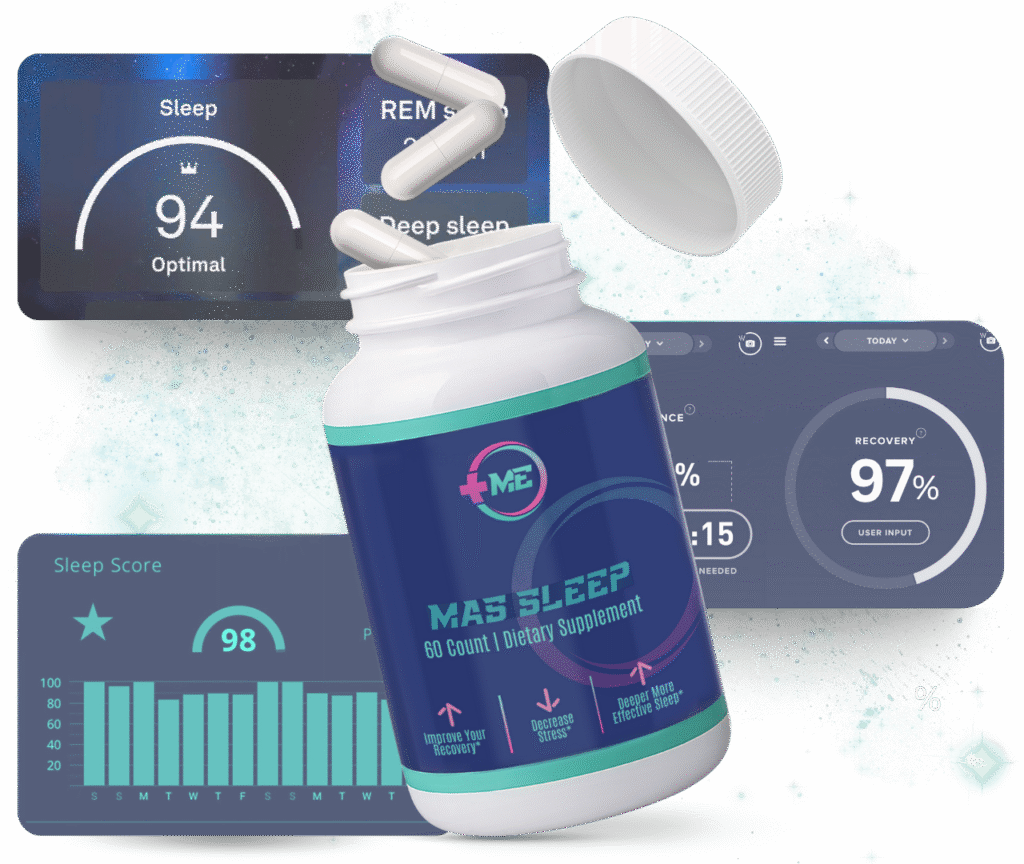
What Makes MAS Sleep Different?
Unlike traditional sleep supplements that “knock you out” with melatonin and other habit-forming ingredients, we’re focused on improving your recovery through sleep.
That means clinically researched, natural ingredients you can safely take everyday to improve your sleep quality.
Increase Deep, R.E.M Sleep
Clinically data and our customer feedback show significant increases to their sleep scores with most averaging 90% + per night.
Boost Recovery
Research on our ingredients has shown deeper sleep leads to faster and more efficient recovery so you can absorb all of your hard training.
Wake Up Rested
No melatonin means you wake up refreshed and without the typical grogginess you get with other sleep supplements.
Helps Calm & Relax
MAS Sleep helps calm the body and central nervous system, especially after hard training days, so your mind can naturally unwind after a long, busy day.
Stay Asleep Longer
Interrupted or fragmented sleep is a major reason we feel tired even after "7+ hours" of sleep. MAS Sleep allows you to get and stay in deep sleep longer.
Fall Asleep Faster
At the core of modern sleep problems is stress: neural circuits that just won't turn off. MAS Sleep is like naturally turning the lights off before you go to bed.
INGREDIENTS CLINICALLY SHOWN IN OVER 21 STUDIES TO help you get the best sleep of your life
Formulated by in-house researchers to contain clinically effective doses of only the most research-backed sleep ingredients. No bullsh** patented formulas or harsh sedatives. 35+ clinicians and health professionals confidently recommend MAS Sleep.
- Magnesium (300mg)
- Ashwagandha (250mg)
- Valerest (228.9mg)
- Gaba (200mg)
- L-theanine (200mg)
- Tryptophan (200mg)
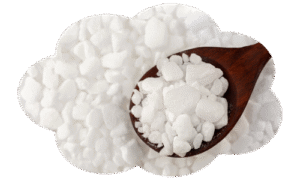
Magnesium (as Magnesium Bisglycinate Chelate)
Magnesium is the single best “sleep supplement” you can use. It’s supported by countless research studies and impacts sleep, performance, and recovery on multiple levels.
Moreover, studies suggest that 75% of endurance athletes are deficient in magnesium, so it is likely a mineral you need to supplement with regardless if you need to improve your sleep or not.
- Improve recovery between workouts by reducing the stress intense running causes [1]
- Help you enter a state of “deep sleep” longer to recover better since it lowers cortisol levels [4]
- Increase testosterone levels [5]
- Directly improves endurance performance by reducing heart rate, ventilation, oxygen uptake, and oxygen consumption [6,7,8.9]
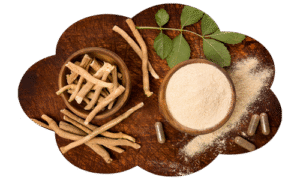
Ashwagandha
Ashwagandha is known for its stress-reducing properties, and stress and anxiety are common culprits behind sleep disturbances. By calming the nervous system, ashwagandha may indirectly promote better sleep.
Some studies suggest that ashwagandha can lead to improvements in sleep parameters like sleep onset latency (the time it takes to fall asleep), total sleep time, and sleep efficiency (the ratio of time spent sleeping to time spent in bed).
Research indicates that ashwagandha may help reduce the number of times people wake up during the night.
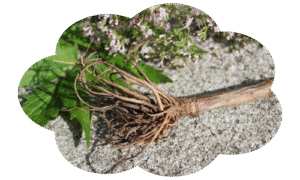
Valerest
Valerest is a proprietary blend of natural ingredients, including valerian root, designed to promote sleep and relaxation.
Results from multiple studies indicate that valerian — a tall, flowering grassland plant — may reduce the amount of time it takes to fall asleep and help you sleep better.
Specifically, a systematic review of 16 randomized controlled trials found that valerian improved sleep quality in 80% of trials [1]
In a meta-analysis of 18 studies valerian showed a statistically significant benefit compared to placebo [2] and in a study of 128 patients, 44% reported perfect sleep and 89% reported improved sleep after valerian [3]

Gaba
Gamma aminobutyric acid (GABA) is a neurotransmitter that binds to receptors between neurons and reduces their tendency to “fire” and transmit nerve impulses.
This, in turn, can reduce stress and excitement and promote calm and restfulness, which is why research shows that supplementation with GABA . . .
May reduce the time it takes to fall asleep [1,2,3]
Improves the perceived quality of sleep [4,5]
Increases sleep efficiency [6]
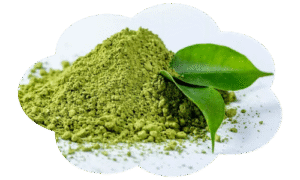
L-theanine
L-theanine is an amino acid found primarily in tea that helps balance the levels of two chemicals in the brain known as glutamate and GABA, which transmit nerve impulses.
This, in turn, can reduce anxiety and promote relaxation without causing drowsiness, which is why research shows that supplementation with L-theanine . . .
- Reduces the time it takes to fall asleep [1]
- Improves restfulness after sleep [2]
- Supports relaxation [3]
- Reduces the effects of mental stress [4]
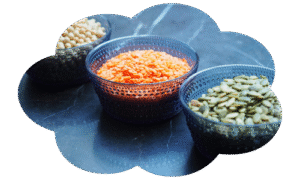
Tryptophan
Tryptophan is an essential amino acid and a precursor to serotonin and melatonin, both of which are crucial in sleep regulation. But, unlike melatonin, tryptophan does not impair REM sleep or cause dependency.
- Low-dose tryptophan (200 mg) has been shown to increase subjective sleepiness and decrease wakefulness before sleep onset.
- Polysomnographic studies show tryptophan increases Stage 3 (deep) sleep and reduces nighttime awakenings.
- Magnesium
- Ashwagandha
- Valerest
- Gaba
- L-theanine
- Tryptophan

Magnesium (as Magnesium Bisglycinate Chelate)
Magnesium is the single best “sleep supplement” you can use. It’s supported by countless research studies and impacts sleep, performance, and recovery on multiple levels.
Moreover, studies suggest that 75% of endurance athletes are deficient in magnesium, so it is likely a mineral you need to supplement with regardless if you need to improve your sleep or not.
- Improve recovery between workouts by reducing the stress intense running causes [1]
- Help you enter a state of “deep sleep” longer to recover better since it lowers cortisol levels [4]
- Increase testosterone levels [5]
- Directly improves endurance performance by reducing heart rate, ventilation, oxygen uptake, and oxygen consumption [6,7,8.9]

Ashwagandha
Ashwagandha is known for its stress-reducing properties, and stress and anxiety are common culprits behind sleep disturbances. By calming the nervous system, ashwagandha may indirectly promote better sleep.
Some studies suggest that ashwagandha can lead to improvements in sleep parameters like sleep onset latency (the time it takes to fall asleep), total sleep time, and sleep efficiency (the ratio of time spent sleeping to time spent in bed).
Research indicates that ashwagandha may help reduce the number of times people wake up during the night.

Valerest
Valerest is a proprietary blend of natural ingredients, including valerian root, designed to promote sleep and relaxation.
Results from multiple studies indicate that valerian — a tall, flowering grassland plant — may reduce the amount of time it takes to fall asleep and help you sleep better.
Specifically, a systematic review of 16 randomized controlled trials found that valerian improved sleep quality in 80% of trials [1]
In a meta-analysis of 18 studies valerian showed a statistically significant benefit compared to placebo [2] and in a study of 128 patients, 44% reported perfect sleep and 89% reported improved sleep after valerian [3]

Gaba
Gamma aminobutyric acid (GABA) is a neurotransmitter that binds to receptors between neurons and reduces their tendency to “fire” and transmit nerve impulses.
This, in turn, can reduce stress and excitement and promote calm and restfulness, which is why research shows that supplementation with GABA . . .
-
May reduce the time it takes to fall asleep [1,2,3]
-
Improves the perceived quality of sleep [4,5]
-
Increases sleep efficiency [6]

L-theanine
L-theanine is an amino acid found primarily in tea that helps balance the levels of two chemicals in the brain known as glutamate and GABA, which transmit nerve impulses.
This, in turn, can reduce anxiety and promote relaxation without causing drowsiness, which is why research shows that supplementation with L-theanine . . .
- Reduces the time it takes to fall asleep [1]
- Improves restfulness after sleep [2]
- Supports relaxation [3]
- Reduces the effects of mental stress [4]

Tryptophan
Tryptophan is an essential amino acid and a precursor to serotonin and melatonin, both of which are crucial in sleep regulation. But, unlike melatonin, tryptophan does not impair REM sleep or cause dependency.
- Low-dose tryptophan (200 mg) has been shown to increase subjective sleepiness and decrease wakefulness before sleep onset.
- Polysomnographic studies show tryptophan increases Stage 3 (deep) sleep and reduces nighttime awakenings.
Human Clinical Studies
100% All Natural
Third Party Tested
Vegan & GMO Free
Made in USA
115 sleep trackers report MAS Sleep significantly improved sleep quality within the first 4 days
